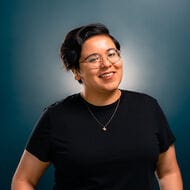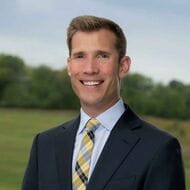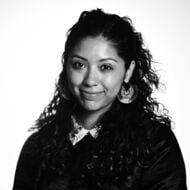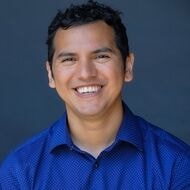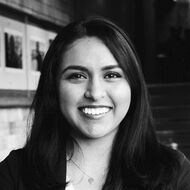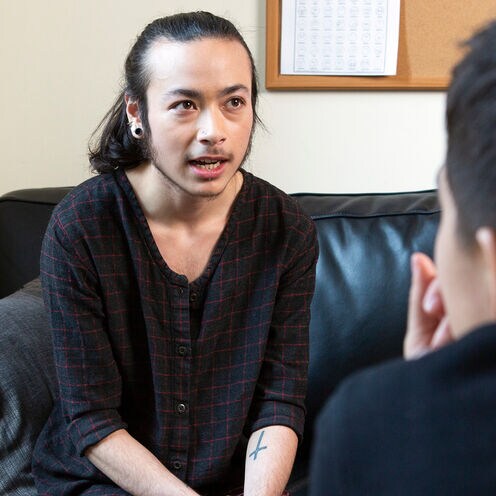
Opening Doors for LGBTQ+ Students
Queer and trans mentors offer support and embody possibilities for LGBTQ+ students. They also help shape those students’ futures.
The typical drama of high school—fights and arguments among students in the cafeteria—was too much for Rhonda Lee when she was a freshman in Miami. So she asked one of her teachers, Kezia Gilyard (Miami-Dade '12), if she could eat lunch in their classroom instead.
During the 30-minute break, Lee and Gilyard would discuss anything from family troubles to social issues. It was the first time, Lee says, that she experienced a positive interaction with an adult who was “calm, emotionally articulate, and emotionally intelligent.”
“I was like yay, I have a friend in this educator!”
What started as lunch conversations developed into a mentorship between Gilyard and Lee, who are both Black and queer. That connection has blossomed over the last eight years, guiding Lee through high school, college, and her professional career as a teacher.
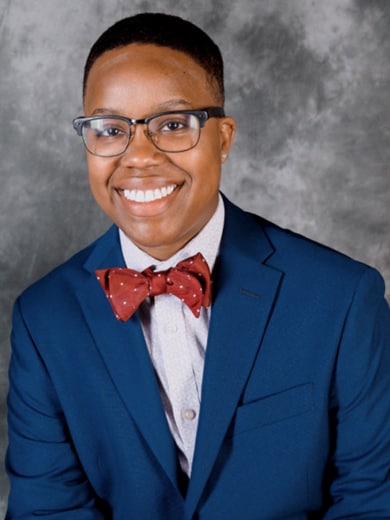
The support has not been one-sided. Gilyard was having their own difficulties as a gender-nonconforming teacher when they met Lee. Gilyard faced discrimination from administrators and colleagues for wearing ties to work. Lee “knew I was having a hard time. It wasn't a secret,” Gilyard says. “The kids would be like, why are they picking on you?”
Lee would finish her work early and approach Gilyard’s desk and ask how they were doing. “Rhonda affirmed me when I was a teacher experiencing homophobia and transphobia, when I had adults who would make it seem like me wearing a tie to work was me ruining children's lives,” Gilyard says. “She made me feel like a good teacher.”
Why LGBTQ+ Mentors Matter
The connection between Lee and Gilyard is one example of the power and importance of mentors.
For LGBTQ+ students, mentors can offer critical support and guidance, especially while students are overcoming challenges such as rejection from their peers and parents, according to research by the National Mentoring Research Center. When LGBTQ+ adults mentor LGBTQ+ students, the relationship can be extra meaningful since mentors and mentees share similar lived experiences.
According to GLSEN’s 2019 report on LGBTQ+ students in K-12 schools across the country, more than half of LGBTQ+ students reported feeling unsafe at school because of their sexual orientation, and 4 in 10 reported feeling unsafe because of how they expressed their gender. The report also suggests that an important aspect of creating a safer, more inclusive environment for LGBTQ+ students is having supportive school staff. When students have more supportive staff at school they are less likely to miss school and more likely to have higher GPAs, plans for graduation and college, and higher levels of self-esteem.
Gilyard, who grew up in a Southern Baptist household, recalls how their gender nonconformity was “a wedge between me and my own mother,” they say. Ruby Diaz, Gilyard’s 10th grade language arts teacher, noticed that Gilyard wasn’t happy and began to intentionally support and mentor them. Diaz, who Gilyard later learned was also a queer teacher, recited a quote by writer Anais Nin to Gilyard, which has stuck with them today: “And the day came when the risk to remain tight in a bud was more painful than the risk it took to blossom.”
“She would say that to me over and over, and I didn't really get it,” Gilyard says. “Now, I realize she was just like, you have to be yourself. Continuing to censor yourself and limit yourself is going to eat you alive. I was very much living for my parents.”
In high school, Umut Dursun had an “unspoken bond” with his gay soccer coach, who was always supportive and affirming of his gender identity. But not knowing a trans adult as a youth is what motivated Dursun to become a teacher and mentor. A former Marine, Dursun came out as a trans man in 2010 and joined Teach for America the following year. “A big reason that I went into the classroom was because I felt like I didn't know who I got to be as a kid and I wanted to be that visibility for my students,” he says.
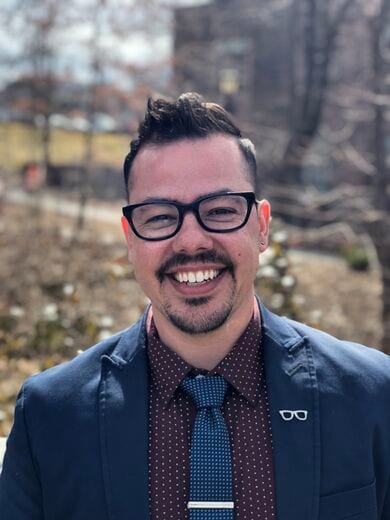
Dursun is now the co-executive director at Yes Institute, a gender education and youth suicide prevention organization. Dursun also serves on the leadership team for Camp Aranu'tiq, a summer camp for trans children ages 8 to 15. Older teens who are alumni of the camp can become counselors-in-training, while young adults are camp counselors. “This is the first time in my life and probably, as far as I can tell, in history, where we've had multiple generations of people with the same experience in one place,” Dursun says.
Historically, narratives in the media about trans people have been grim and dire, Dursun explains. While trans people face violence due to their gender and challenges such as discrimination in the workplace, it’s important for trans youth to see that there are older trans people who are happy and healthy, he says.
Being a visible trans adult is critical to helping trans children see themselves in the future, he says.
“I don't remember seeing visible trans people growing up, but I get to be that for someone else,” Dursun says. “And for the families of the youth that I work with, them being able to say, ‘wow, I can see my child having a future.'”
At camp, the kids aren’t singled out for being trans. Instead, they’re allowed to just be kids and have fun taking part in summer activities including archery, swimming, and sports. Seeing their older peers model values such as courage and vulnerability creates a safe space for campers to try new things and develop self-confidence.
“Being bold and taking risks is something that I like to instill in our campers because they may be afraid to try something new—out of fear of failure or just out of they've never done it before,” Dursun says.
“It’s really a beautiful thing to watch kids grow into themselves.”
Nurturing a Community of LGBTQ+ Mentors
LGBTQ+ mentors play an important role in supporting LGBTQ+ youth as they navigate major milestones such as college and career. Often, that means having the assurance and support from a trusted adult to take the next step.
“When we think about anxiety, depression, and issues that LGBTQ+ young people face, oftentimes, those who are most vulnerable don't necessarily have the empowerment, the self-esteem, or the resources to be able to put their best foot forward in getting a job or interview,” says Shane Mendez Windmeyer, executive director at Campus Pride, an organization dedicated to creating more inclusive LGBTQ+ friendly colleges and universities.
Windmeyer has fostered connections and mentorships between LGBTQ+ students and leaders for 20 years, since the organization’s inception.
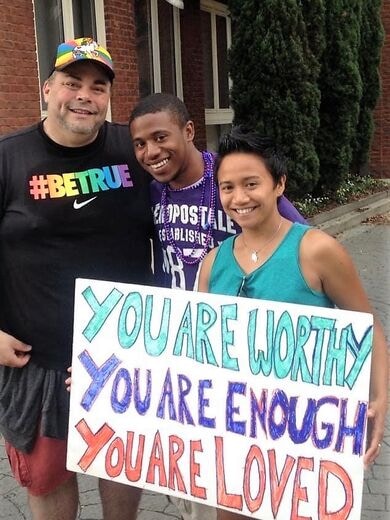
“Having someone who is also queer or also a person of color, or has similar interests with yours, it allows you to connect and really create that personal relationship, and have a mentor—someone who's on your side, who's going to be there for you.”
In the fall, Campus Pride will roll out a new program called Career Connect, an online portal where college students can search for mentors who can help sharpen their interviewing skills, build a resume, or most importantly, create a connection to an LGBTQ+-friendly employer. (Teach For America is one of the inaugural partners of Career Connect.)
Participants will hear about companies that are LGBTQ+ inclusive, Windmeyer says. “On paper, it looks great, but when they show up, or when they get an interview in person, they feel stigmatized or ostracized, or maybe there's just anxiety. So by giving them a connection to someone, they feel comfortable at that company, and that's what retains people, as well as what gets them in the door."
Mentorship Comes Full Circle
Creating connections and holding space for queer students kept Gilyard afloat as they faced homophobia and discrimination during their early teaching career.
Gilyard, along with two other teachers, helped a transmasculine student start a Gender and Sexuality Alliance (GSA) at the school. “All the queer kids always flocked to me, no matter where I am,” Gilyard says. “Being able to be there for them, even if it was just to listen, to reassure them, to talk to them about whatever they needed, that was helpful to me. That was cathartic.”
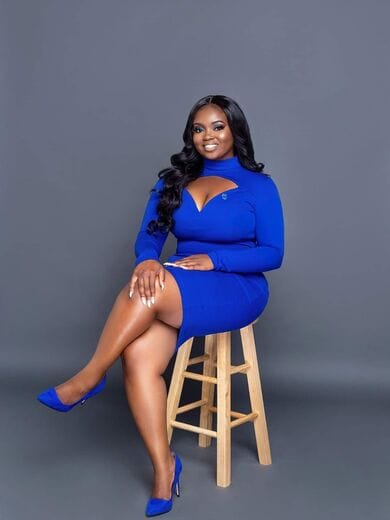
Lee, who spent her lunchtime in Gilyard’s classroom as a ninth grader, says she’s always been “a hippie” and loves people who are usually “unloved.” It’s what prompted her to become involved with the GSA as the club’s secretary. About 20 students would meet once every few weeks to learn about the various identities within the LGBTQ+ spectrum. For Lee, it was like “a friend club” where kids got together to talk about their personal experiences and provide emotional support for each other.
“It was kids crying,” Lee says. “It was kids saying things they couldn't even tell their parents, saying things that their friends sitting right next to them going just for the free snacks didn't even know.”
Since graduating high school in 2016, Lee has kept in touch with Gilyard. They meet in person a few times a year to catch up and talk about their personal and professional lives. Gilyard, now the LGBTQ+ coordinator of Broward County Schools, has written Lee letters of recommendation for scholarships and other opportunities. Now Lee will be providing those same opportunities for the next generation of students when she joins Teach For America as a corps member this fall.
Lee says she’s pursuing a career in education because she wants to make an impact on children and hopes to be in a position to change the education system on a national scale. “Me being a Black woman, there's a whole lot of things that I could just rant about all day that's wrong with the education system,” Lee says. “But it's not going to change much, so we’ve got to be the people that make the change.”
Lee says Gilyard is like a “smart, older relative,” who is always going to be there for her unconditionally. Gilyard cared for Lee, provided resources for her, and helped her process emotions and thoughts, she says. Within the last year, Gilyard has started to open up more to Lee and has shared their own personal struggles.
“They were my educator, but at the end of the day, they are a person,” Lee says. “They saw me as more than a student, they saw me as a person.”
We want to hear your opinions! To submit an idea for an Opinion piece or offer feedback on this story, visit our Suggestion Box.
Sign up to receive articles like this in your inbox!
Thanks for signing up!
Content is loading...


